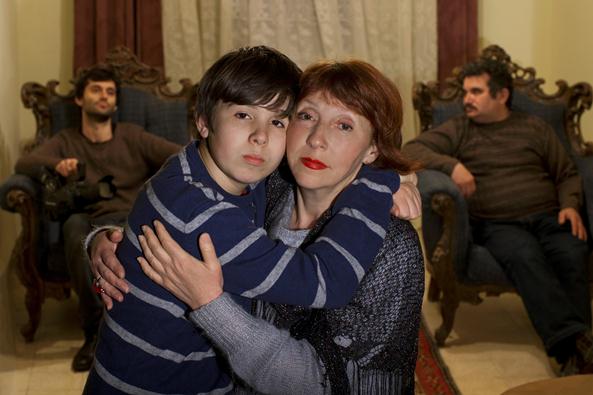
A house is not a home, so the old song goes. Fair enough, but then what is? The notion of home goes beyond the physical, one understands. It encompasses the emotional, is shaped by the intangible, even imperceptible. Home, one could argue, demands a communion of minds; it’s not so much what is there as who is there.
Home Movie, written and directed by Reuven Brodsky, is understated documentary that teases out the essence of home-ness, albeit curiously through its lack. Three generations of an immigrant family are drifting apart, family ties unravelled by divorce and new relationships. Holding them together is their Jerusalem flat, their first home after making aliyah from Russia. The flat is now empty, and must be rented out to new tenants. But it is a repository of communal memories, and disengagement will not be simple. As the erstwhile inhabitants squabble and reminisce, it slowly becomes clear that in order to set down new roots, they must dismantle their old world, disengage from what was once their construct of home. It is no easy task.
Brodsky shapes a very real intimacy with his subjects, thanks to – or perhaps despite – his closeness to them as his immediate family. (He makes the occasional fleeting appearance on screen, but is more often a disembodied, gently questioning presence behind the camera.) From the start, he presumes a familiarity between audience and his principals: it takes time to sift through the relationships, a slight confusion from the first that mirrors the flux within all the relationships. His parents Liza and Oleg, both with new partners, retain a pragmatic, at times somewhat spiky connection; Brodsky, their son, and and his own ex-wife are more wistful about the past. Danny, representative of the third generation – and thus, the only member of the family to have grown up in Israel – seems most able to articulate his inner world, on behalf of himself and his elders.
Brodsky – quite sensibly, in my opinion – resists the temptation to create social documentary out of personal drama. The ingredients are all there, true: immigration, dissolving marriages, financial pressures prompting painful personal choices. But these all feed, rather than define family status. Brodsky does not present his family as a family in crisis, but rather as one in transition.
Rather, Home Movie is shaped by Liza, the stoic but by no means silent presence at the centre of the film. She hectors, chides, cajoles and urges on the work of dismantling the past, but at the same time reveals a depth of character and self-awareness to understand what is to be lost. It is not that she is without sentiment; far from it, as we see when she is serenaded – by telephone, of all things – by her new amour. But she looks to the future not to the past. When she slips into a thoughtful reverie about her life in Israel, one realises that the past, like Russia, is another country for her. They do things differently there.
What evolves is a engaging and optimistic snapshot of everyday life. Nothing special, no pathology. Just a group of people in search of a new emotionally secure space. It’s something we can all relate to, I think.
Home Movie received the award for Best Israeli Film at Docaviv 2012, the opening film of Docaviv Galil 2012, there will be a second screening on Friday, November 30, 2012.






Comments are closed.